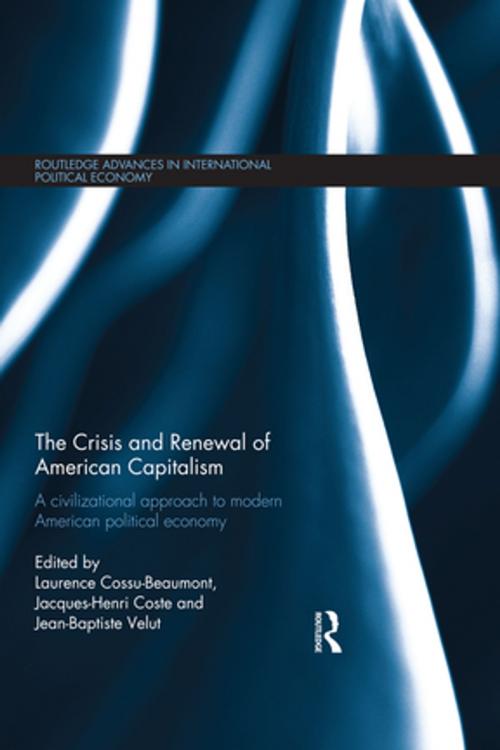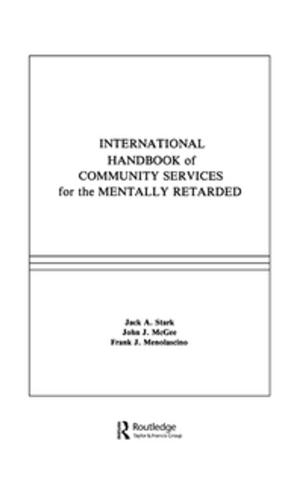The Crisis and Renewal of U.S. Capitalism
A Civilizational Approach to Modern American Political Economy
Nonfiction, Social & Cultural Studies, Political Science| Author: | ISBN: | 9781317439110 | |
| Publisher: | Taylor and Francis | Publication: | December 22, 2015 |
| Imprint: | Routledge | Language: | English |
| Author: | |
| ISBN: | 9781317439110 |
| Publisher: | Taylor and Francis |
| Publication: | December 22, 2015 |
| Imprint: | Routledge |
| Language: | English |
Despite the reversal of America’s fortune from the triumphalism of the Roaring Nineties to the gloom of the lost decade and the Great Depression, theoretical conceptions of US capitalism have remained surprisingly unchanged. In fact, if the crisis questioned the sustainability of the US capitalist paradigm, it did not fundamentally challenge academic theorization of American political economy.
This book departs from the American political economy literature to identify three common myths that have shaped our conceptualization of US capitalism: its reduction to a state-market dyad dis-embedded from societal factors; the illusion of a weak state and the synchronic conception of the US variety of capitalism. To remedy these pitfalls, the authors propose a civilizational approach to American political economy at the crossroads between cultural studies, history, sociology and political science.
Drawing together contributions from a rich variety of fields (from geography to cultural studies, political science and sociology) this work sheds a new light on America’s "cultural political economy" combining theoretical reflection with empirical data and offering innovative perspectives on the crisis and renewal of American capitalism.
Despite the reversal of America’s fortune from the triumphalism of the Roaring Nineties to the gloom of the lost decade and the Great Depression, theoretical conceptions of US capitalism have remained surprisingly unchanged. In fact, if the crisis questioned the sustainability of the US capitalist paradigm, it did not fundamentally challenge academic theorization of American political economy.
This book departs from the American political economy literature to identify three common myths that have shaped our conceptualization of US capitalism: its reduction to a state-market dyad dis-embedded from societal factors; the illusion of a weak state and the synchronic conception of the US variety of capitalism. To remedy these pitfalls, the authors propose a civilizational approach to American political economy at the crossroads between cultural studies, history, sociology and political science.
Drawing together contributions from a rich variety of fields (from geography to cultural studies, political science and sociology) this work sheds a new light on America’s "cultural political economy" combining theoretical reflection with empirical data and offering innovative perspectives on the crisis and renewal of American capitalism.















